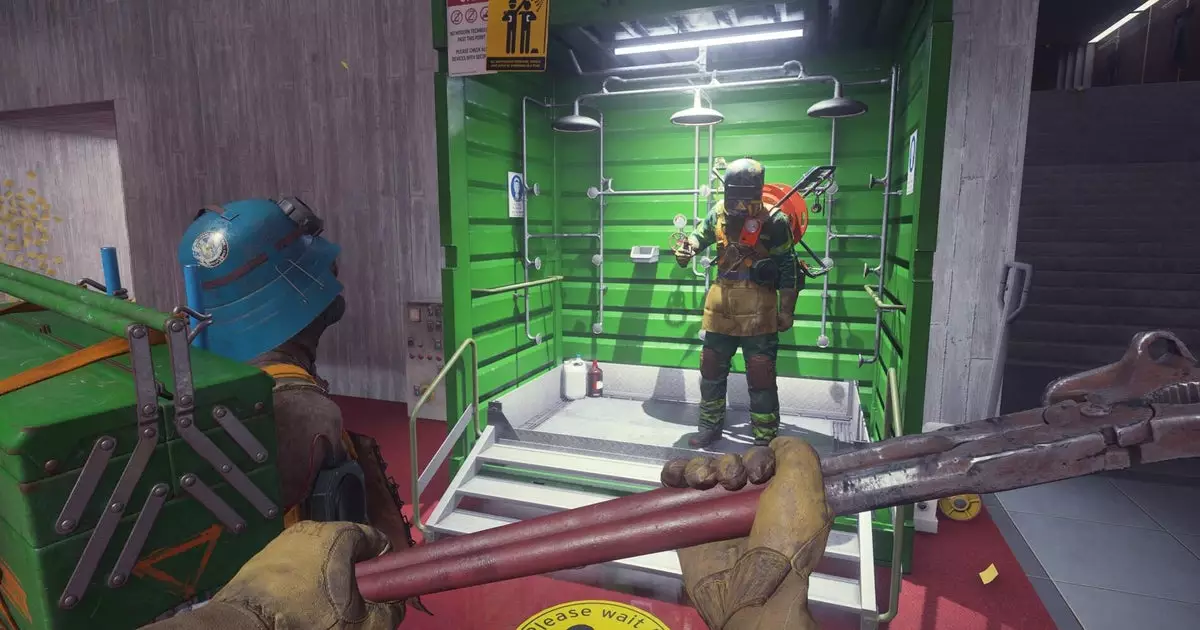In an exciting new venture, Remedy Entertainment, the creators behind the critically acclaimed Alan Wake and Control, have announced their inaugural entry into multiplayer gaming. Titled FBC: Firebreak, this three-person co-op shooter expands upon the existing Remedy Connected Universe, providing players a thrilling experience set within the fantastical, yet eerie world of Control. While the title may seem cumbersome due to its initial codename, it carries a weight heavy with potential and expectations.
The backdrop of Firebreak takes place in the iconic Oldest House, the shifting Brutalist structure that served as the center of Control’s supernatural chaos. Players will step into the shoes of first responders working for the Federal Bureau of Control (FBC) — a unique twist for a multiplayer game. In a world characterized by its paranormal elements and interdimensional threats, players are tasked with combating these eerie invaders.
As a co-op shooter, Firebreak diverges dramatically from the single-player, narrative-driven approach that Remedy is known for. Instead, it embraces a format conducive to teamwork and fast-paced action, emphasizing instant engagement with multiplayer gameplay while still reflecting Remedy’s signature themes of horror and absurdity. The developers aim to balance the intensity of gameplay with the enjoyable camaraderie that comes from collaborating with friends.
One fascinating aspect of gameplay in Firebreak is the introduction of “Ultimate” abilities inspired by Altered World Objects (AWOs). These capabilities bear a resemblance to the mechanics found in Overwatch—a clear nod to remedy’s intent to inject cooperative synergy into the horror-infused world of Control. However, the developers are keen to emphasize that these abilities come with inherent risks. As described by Remedy’s communications head, Thomas Puha, their use should be approached with caution: the likening of an ultimate ability to a “jaguar in a box” serves as an evocative metaphor for the unpredictability players might face when unleashing their powers. This dynamic invites tension and excitement, aligning with the overarching themes present in prior Remedy titles.
Importantly, while Firebreak will incorporate a progression system, the developers are determined to steer clear of the typical “game-as-a-service” model. They envision a game that is accessible and straightforward, devoid of the grindy aspects that can sometimes overshadow enjoyment in modern multiplayer shooters. This decision aligns with their goal to create an engaging experience that players can easily pick up and enjoy without feeling overwhelmed by numerous loadouts and complex systems.
Despite transitioning toward multiplayer gameplay, FBC: Firebreak does not wholly abandon the dense narrative elements characteristic of Remedy’s previous works. Set chronologically after Control, it aims to weave itself into the broader lore of the Remedy universe without replicating the single-player storytelling of its predecessors. Game director Mike Kayatta has made it clear that while Firebreak will explore familiar locales, players can expect a different narrative presentation—one that focuses more on the multiplayer experience than an intricate story, creating a fresh entry point for players.
It’s a notable shift, but one that could enrich the overall experience of Remedy’s universe. By offering players different perspectives within the Oldest House, combined with the studio’s knack for surreal horror, Firebreak has the potential to provide a multifaceted view of the world that fans have come to love.
FBC: Firebreak is an ambitious venture for Remedy Entertainment as they challenge themselves to delve into a space largely untouched by their previous work. The complexities of crafting a multiplayer experience while still honoring their roots in narrative-driven gameplay will be a difficult balance to achieve. However, with a focus on player interaction, engaging mechanics, and a willingness to explore the mythos of the Control universe, they may redefine multiplayer gameplay with their unique flair. As this new chapter unfolds, one can only hope that Remedy’s foray into co-op challengers will captivate players without falling into the pitfalls of modern content factories. The future of Firebreak holds promise, excitement, and the haunting allure fans have come to expect from Remedy’s imaginative storytelling.

